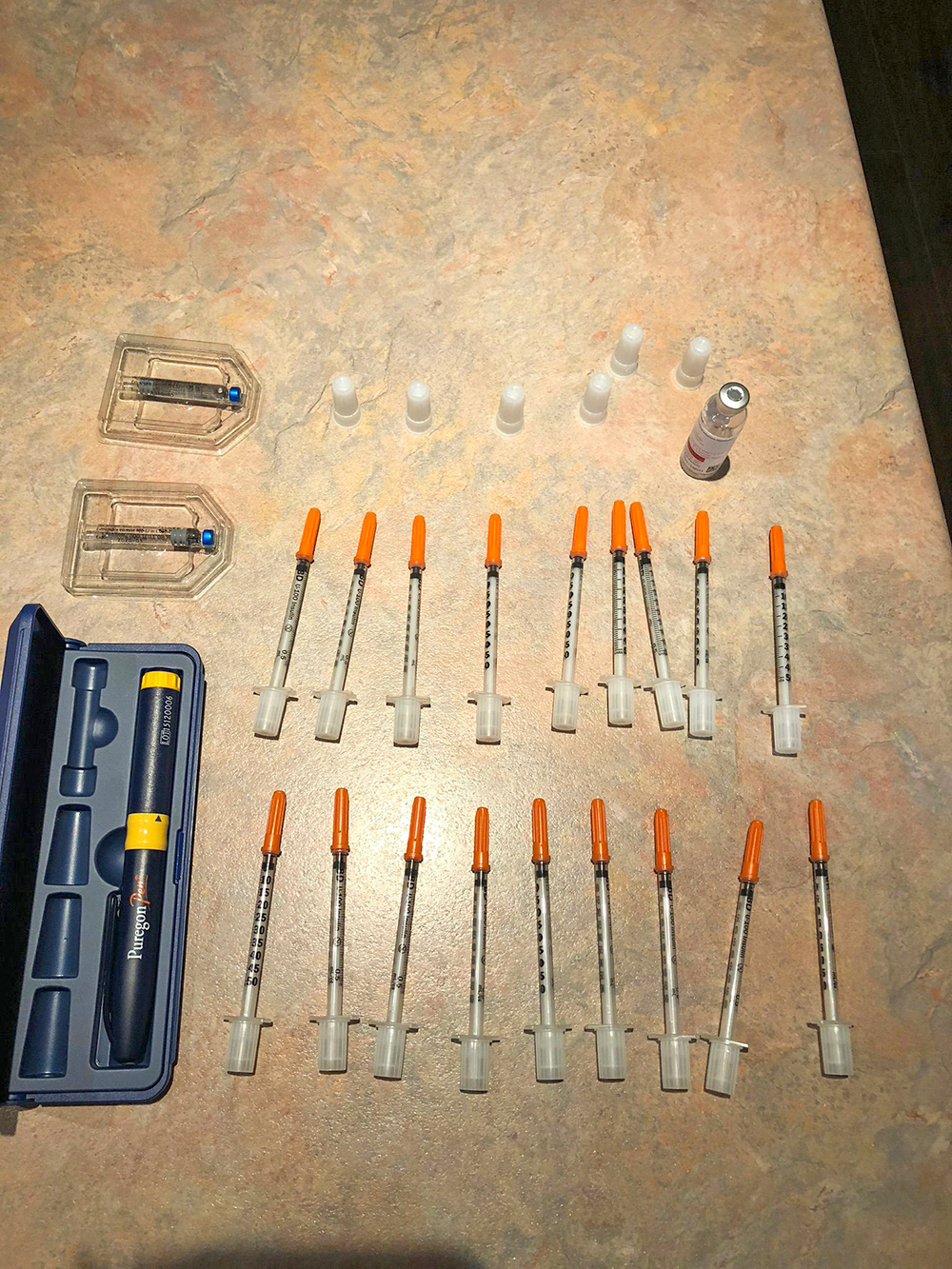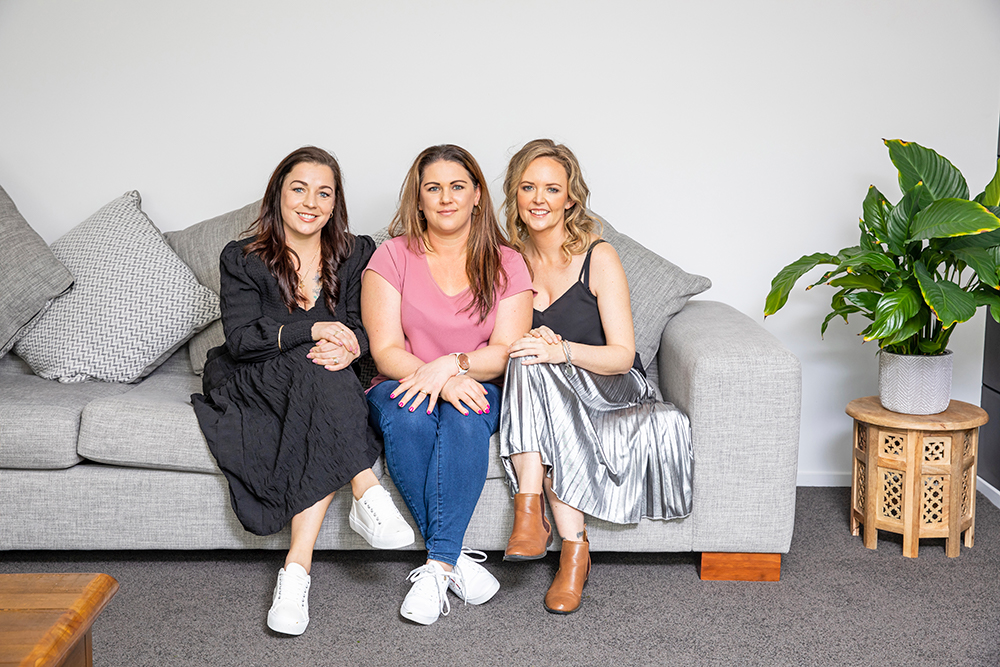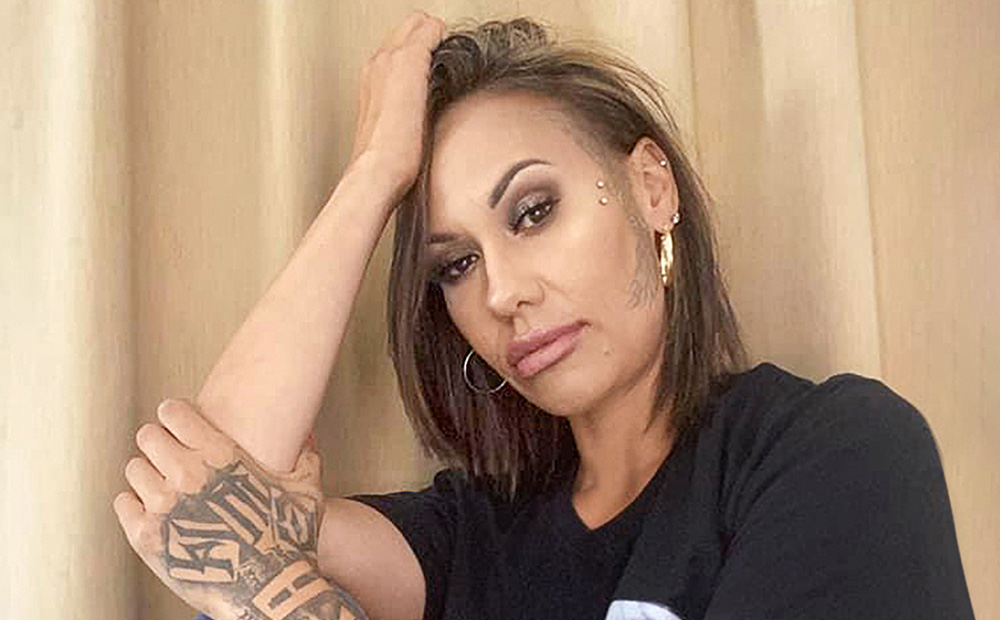Melissa Hori, Simone Fernandes and Stephanie Larnder are three friends in their 30s whose lives have all been connected – and consumed – by one thing: infertility.
Their stories are vastly different, with the end goal the same. But when they set out to share their experiences in a book, they didn’t know which of them, if any, was going to get the happy ending of motherhood they all hoped for.
To be released later this month, When Sex Isn’t Enough tells how each of the authors has navigated the rollercoaster of their fertility journeys and how it’s deeply affected different areas of their lives.
Individually they have endured cervical cancer, endometriosis, a hysterectomy, IVF, surrogacy and adoption as part of their struggle to have a baby.

Then there was the “torture” of attending baby showers or having people question, “Why haven’t you had kids yet? Don’t wait too long!”
“Infertility affects one in four women, yet it’s still something that many suffer in silence with,” says Simone from her home in South Auckland. “People aren’t openly talking about their fertility issues. There is still a stigma attached. However, part of the healing process for us, is talking about it.”
During their fertility battles, they found it hard to find New Zealand resources that had both medical information but also detailed the emotional toll.
“So we felt compelled to share our stories in the hope that it provides comfort to other Kiwi women and helps them feel less alone on their journey,” shares Melissa.
“Our book offers advice and sheds light to those who might know someone battling through infertility, whether you’re an employer or a friend. We also have a chapter on how it affects relationships, and our husbands share their perspectives.”
An angel gave us a son
Stephanie’s future dreams of carrying a child came to an abrupt halt when she needed a full hysterectomy at 24, after her endometriosis was “spreading furiously”.
“The gynaecologist gave me some hard truths. I had hydrosalpinx (fluid in the fallopian tubes), rectovaginal endometriosis and I had grown more cysts on the same ovary that a previous 20cm cyst had been removed from,” tells the 32-year-old.
“This was all on top of previous medical issues. But my husband Matt [also 32], assured me, ‘If it’s you or babies, I will pick you every time.’ So in 2015, I had a full hysterectomy, removing my uterus, fallopian tubes, cervix and ovaries.”

Stephanie underwent drastic surgery at just 24.
About a year after the operation, the couple decided they were ready to become parents one way or another, and chose to explore adoption through Child, Youth and Family.
What they didn’t realise was how low adoption rates are in New Zealand, mainly due to abortion and whāngai (the adoption of a child within an extended family).
“We were told there were another 75 couples in Auckland alone also waiting to adopt. And that the number of those in a ‘traditional adoption’ situation – where a mother gives up the child at birth to be parented by strangers – was less than 10 annually.”
Disheartened, Stephanie and Matt posted anonymously on a New Zealand-based Facebook page that they were looking for a gestational surrogate as they had embryos frozen at a fertility clinic.
Four women responded with genuine interest and they met their “real-life angel”, a woman called Janelle, who offered to be their surrogate.
“It’s incredible that anyone would put up their hand to do that for a stranger, for no money,” marvels Stephanie.
“Through her, our son Grayson was born in April 2020. In that moment, the years of pain melted away.

“However, the pain of infertility still comes and goes,” she points out.
“I am so grateful for Grayson, but some days I see pregnant women and think, ‘Oh, how I would love to experience that.'”

Stephanie and Matt are so grateful for Grayson.
It felt like the odds were stacked against us
As a former human biology teacher, Melissa, 38, instinctively knew something was wrong after only a few months of trying to become pregnant.
She says all the literature tells you not to even think about fertility until you have been trying for a year. She was repeatedly advised not to stress and that “it would happen when the time was right”.
But she and her husband Lewis, 40, decided they needed to look into it and discovered that Lewis’ sperm quantity was extremely low. Tests also revealed that Melissa had polycystic ovarian syndrome (PCOS).

For Melissa talking about kids was off the agenda.
“We were gutted,” recalls Melissa. “It felt like the odds were stacked against us. I read some research that said the stress of infertility was comparative to that of someone undergoing cancer treatment, dealing with AIDS or recovering from major cardiovascular issues.
“I learned I needed to be very explicit with my boundaries to protect myself. I was honest with my friends and told them, ‘I’m not going to any more baby showers’, or, ‘If you guys want to talk about your kids, please don’t include me in the group chat.’
“Of course, they didn’t want to leave me out, but I said, ‘Trust me, I’m giving you permission to leave me out for my own mental wellbeing.'”
Melissa goes on to explain, “When groups of men, fathers or not, get together, their conversations don’t typically revolve around baby feeding or sleeping; they talk about sport or work. But when groups of women get together, often their common ground is that they have children and so that’s what they talk about. Humans find the threads that connect us and it is very hard when that connection you don’t share is one you desperately want.”
The couple began in vitro-fertilisation (IVF) through an Auckland fertility clinic. Amazingly, they became pregnant on the first round and in March 2019, their beautiful baby girl Layla was born.

Melissa and Lewis had IVG success.
“We are the lucky ones. Although it wasn’t easy – it was anything but – we had a positive outcome.”
I have value as a whole person
For South-African born Simone, her journey has meant coming to the awareness that she needs to value herself “more than just as a mum” – if parenthood isn’t on the cards for her.
“It took me a very, very long time to get to a point of feeling like I had value and was a ‘whole’ person without having children,” she says.
The events manager has endured years of health struggles, starting with her first visit to a gynaecologist at age 19 for a standard annual smear test.

Simone says IVF can talk over your entire life.
“I found out I had stage- three cervical cancer at that appointment. My first question to him was, ‘Will I still be able to have kids?’ And his answer was, ‘Yes, this will not affect your fertility.'”
Six months after her wedding in 2013, Simone and husband Robert, both 35, began trying for a baby. They had immigrated to New Zealand for a better quality of life with their future children.

“But it just wasn’t happening. We were like, ‘Are we doing it right?'” she laughs.
“For the next year, we went through the process of intrauterine insemination (IUI) – a turkey-basting approach to trying to get pregnant. Two unsuccessful IUIs later, we just couldn’t understand why we weren’t getting pregnant.”
The couple have since done their fifth – and final – round of IVF, including two government-funded rounds.
“IVF takes over your whole life… the blood tests, scans, more blood tests, and many daily and nightly hormone injections,” tells Simone, who is slowly coming to terms with the possibility that she may never have a child of her own, but is choosing to
keep the faith anyway.

“I’m genuinely 100 percent happy that Mel and Steph have had their little kiddies because it feels like a win for the team.”
The battle-weary trio first met after Simone worked in the same company as Melissa, who also happened to be friends with Stephanie’s older sister. After realising they were all on the same rocky path to parenthood, they met up for coffee.
“By the end of our five-hour chat, we flippantly said, ‘We should write a book,'” tells Melissa, “because we realised how much the process of trying to get a baby really consumes you when it doesn’t happen naturally.”
“I remember doing things like getting rid of all pesticides in my house,” adds Simone.
“Or you go into a café to order a coffee but then question yourself, ‘Should I even be having caffeine?’ Because you just want to make sure you’re doing everything you can to better your chances.”
They also all agree that having each other to be raw, honest and vulnerable with has got them through the dark times.
“That support was crucial,” says Stephanie.
“Like I remember crying my eyes out at work after hearing Jacinda Ardern was expecting a baby and everyone in the office couldn’t stop talking about it. I was stoked for her, but personally I was so sad because it was a reminder of where I was at.
“So I sat in the toilet and messaged Mel and Simone, ‘Can you believe it?’ We didn’t need to filter what we said to each other because we all understood. And that has been a gift.”
To order When Sex is Not Enough, $27.99, visit whensexisnotenough.co.nz


